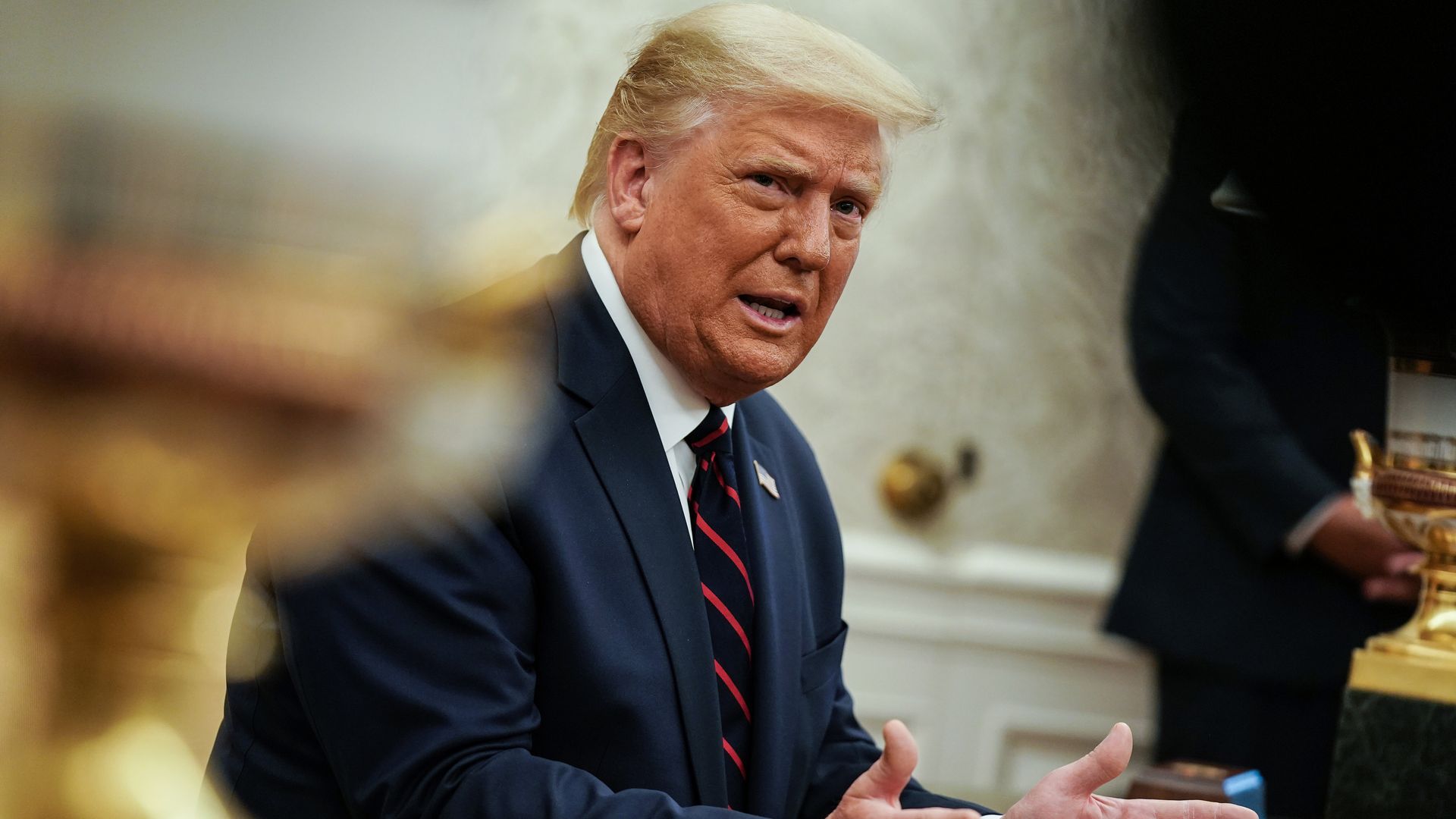FDA announces emergency authorization of plasma treatment for COVID-19
Add Axios as your preferred source to
see more of our stories on Google.

Photo: Anna Moneymaker-Pool/Getty Images
The FDA announced Sunday it will grant an emergency use authorization (EUA) of convalescent plasma as a treatment for the coronavirus, one day after President Trump accused the agency of slow-walking the development of vaccines and therapeutics to hurt him politically.
The state of play: The authorization for plasma, which is safe but not yet proven to work on COVID-19, had been on hold after federal health officials intervened with the FDA last week and argued that the current data on the effectiveness of the treatment was too weak, the New York Times reported.
- Former FDA commissioner Scott Gottlieb said on Sunday that plasma is "probably weakly beneficial," but that health officials "wanted to see more rigorous data to ground this decision."
- It's unlikely to be the major "breakthrough" that White House press secretary Kayleigh McEnany touted in a tweet previewing the announcement on Saturday, according to Gottlieb and other health experts.
What they're saying: "The FDA determined that it is reasonable to believe that COVID-19 convalescent plasma may be effective in lessening the severity or shortening the length of COVID-19 illness in some hospitalized patients," the FDA said in a news release.
- "The agency also determined that the known and potential benefits of the product, when used to treat COVID-19, outweigh the known and potential risks of the product and that that there are no adequate, approved, and available alternative treatments."
- "The EUA is not intended to replace randomized clinical trials and facilitating the enrollment of patients into any of the ongoing randomized clinical trials is critically important for the definitive demonstration of safety and efficacy of COVID-19 convalescent plasma."
How it works: The therapeutic, which has been undergoing testing in clinical trials, involves infusions of antibody-rich plasma from people who have recovered from the virus.
- The idea is to kick-start an infected patient's immune system so they can fight off COVID-19 until they're able to generate their own antibodies, according to Stat News.
- A study of 35,000 people who received plasma treatment through the Mayo Clinic found that the therapeutic has had some impact on reducing mortality among hospitalized coronavirus patients.
- However, the study was not peer-reviewed and did not include a control group, making the data difficult to interpret.
The big picture: White House Chief of Staff Mark Meadows defended Trump's attacks on the FDA on Sunday, claiming on Fox News that "deep state" bureaucrats don't understand the "urgency" of the moment.
- "We are facing unprecedented times, which require unprecedented action," Meadows said. "This president is right to call it out, and I can tell you that the announcement that's coming today should have been made several weeks ago."
- Trump struck a different tone at a news conference announcing the EUA on Sunday, saying he wanted to thank FDA commissioner Stephen Hahn "because the FDA really stepped up, and especially over the last few days, in getting this done."
- He later reiterated that he believes people within the agency "wouldn't mind so much" holding up the development of treatments for political reasons, but did not provide any evidence for the claim.
Between the lines: Trump administration officials told Axios' Alayna Treene in July that the president was planning to change his messaging to heavily promote vaccines and therapeutics, including by personally announcing developments at press briefings.
- Officials believe that's the fastest way to restore confidence in Trump and avoid having the election be a referendum on his handling of the pandemic.
- Trump's plasma announcement comes one day before the start of the Republican National Convention.
The bottom line: The EUA — which is not the same as a full FDA approval — will make the treatment easier to obtain in some settings, but it won't help advance the type of randomized trial needed to fully determine its effectiveness.
